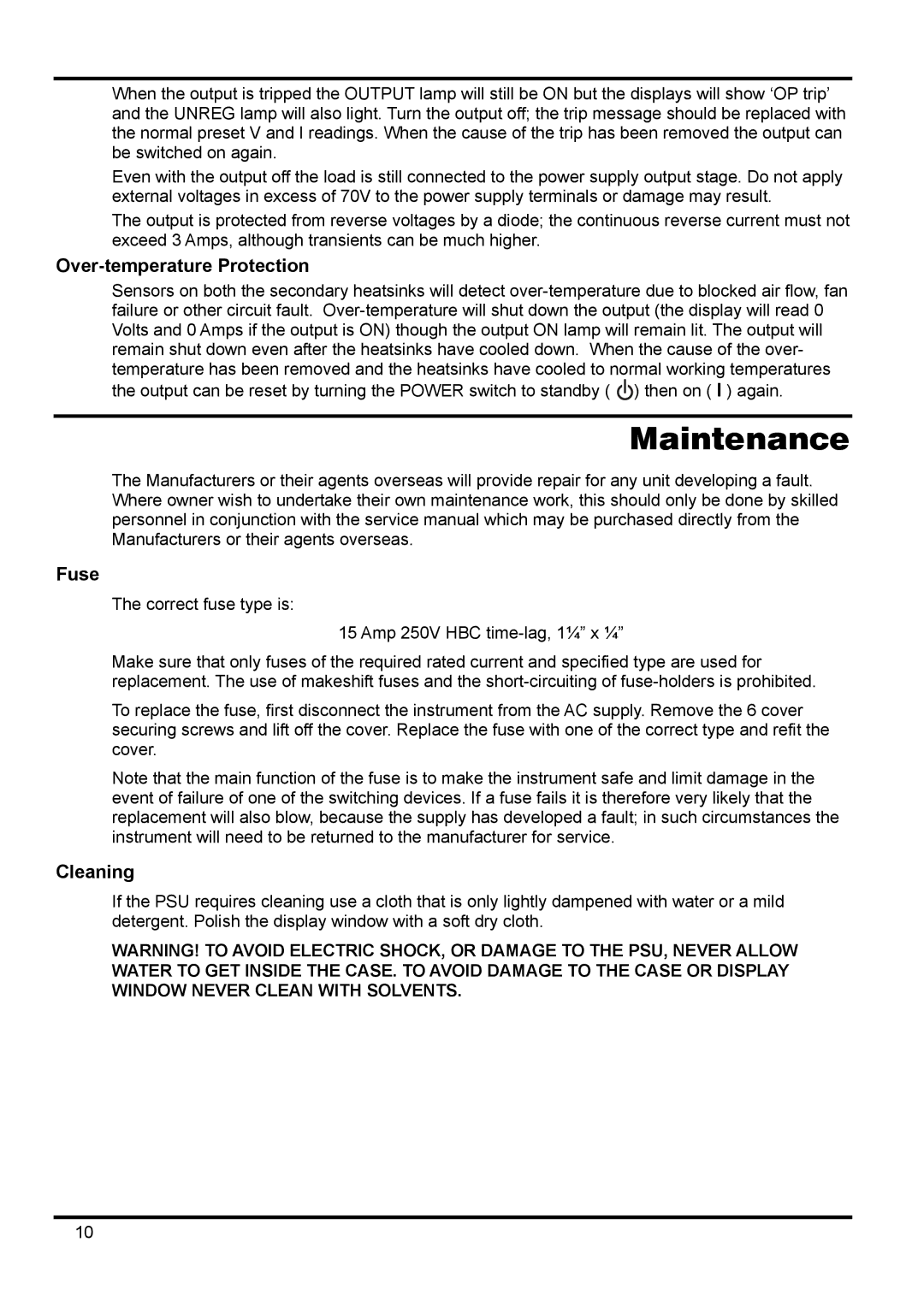
When the output is tripped the OUTPUT lamp will still be ON but the displays will show ‘OP trip’ and the UNREG lamp will also light. Turn the output off; the trip message should be replaced with the normal preset V and I readings. When the cause of the trip has been removed the output can be switched on again.
Even with the output off the load is still connected to the power supply output stage. Do not apply external voltages in excess of 70V to the power supply terminals or damage may result.
The output is protected from reverse voltages by a diode; the continuous reverse current must not exceed 3 Amps, although transients can be much higher.
Over-temperature Protection
Sensors on both the secondary heatsinks will detect ![]() ) then on ( l ) again.
) then on ( l ) again.
Maintenance
The Manufacturers or their agents overseas will provide repair for any unit developing a fault. Where owner wish to undertake their own maintenance work, this should only be done by skilled personnel in conjunction with the service manual which may be purchased directly from the Manufacturers or their agents overseas.
Fuse
The correct fuse type is:
15 Amp 250V HBC
Make sure that only fuses of the required rated current and specified type are used for replacement. The use of makeshift fuses and the
To replace the fuse, first disconnect the instrument from the AC supply. Remove the 6 cover securing screws and lift off the cover. Replace the fuse with one of the correct type and refit the cover.
Note that the main function of the fuse is to make the instrument safe and limit damage in the event of failure of one of the switching devices. If a fuse fails it is therefore very likely that the replacement will also blow, because the supply has developed a fault; in such circumstances the instrument will need to be returned to the manufacturer for service.
Cleaning
If the PSU requires cleaning use a cloth that is only lightly dampened with water or a mild detergent. Polish the display window with a soft dry cloth.
WARNING! TO AVOID ELECTRIC SHOCK, OR DAMAGE TO THE PSU, NEVER ALLOW WATER TO GET INSIDE THE CASE. TO AVOID DAMAGE TO THE CASE OR DISPLAY WINDOW NEVER CLEAN WITH SOLVENTS.
10
